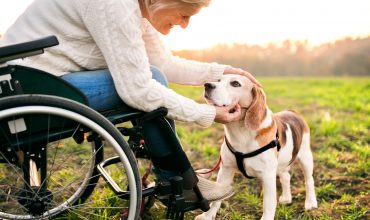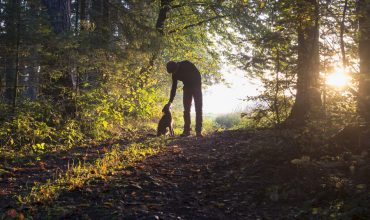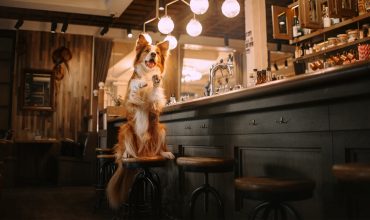Expert tips for calming your dog during fireworks
Guest blog post from Bristol based, expert dog trainer Thomas Smith (ISCP.Dip.Canine.Prac) owner of Man's Best Friend
Around 72% of dogs are negatively affected by fireworks (Dogs Trust survey). 1 in 10 are so severely affected that they need veterinary intervention and or medication, and sadly more dogs go missing at this time than any other time of year. Dog owners around the country dread this time of year if they are one of those that suffer with their phobic dog. Here are a few tips for calming your dog during fireworks:
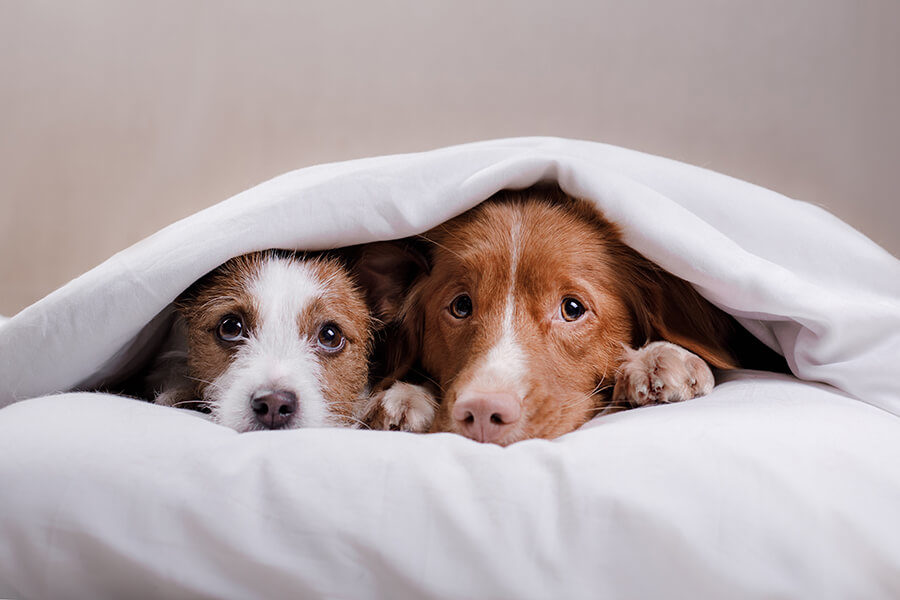
Some signs your dog is frightened of fireworks
Look out for trembling or shaking, being very clingy, or perhaps cowering and finding a hiding place. Some hide in small spaces like under tables, chairs or beds or they may not eat their food. There are some more subtle signs to be aware of yawning, like lip licking, panting, drooling and hyperactivity. They may also be hesitant to go outside for their regular toilet break.
There’s some good news and some bad news regarding solving this phobia. The good news is, it’s actually possible to create a positive association with firework noises which will result in a dog that may ignore or even enjoy fireworks (as it is a precursor to good things happening). This is called desensitisation and counter-conditioning. The bad news is, that this may take years, so it is too late to try and attempt to do it for this year. It took me around 5-6 months but that was not with a severely phobic dog so it may take longer depending on severity.
Desensitisation and Counter-conditioning
Dogs Trust have a good guide and firework noises you can play on super low volume through speakers so it is barely audible. This is called desensitisation. The idea is that your dog will just about hear it but not react towards it. You can then begin to pair the noises with good things happening, like play, food, games and training, at a level that you’re dog is comfortable with. This is called counter-conditioning. Over time, gradually you can increase the volume step-by-step. I would recommend starting this around February time for 2020 and getting in touch with a local behaviourist, via a veterinary referral, may be useful to keep you on track.
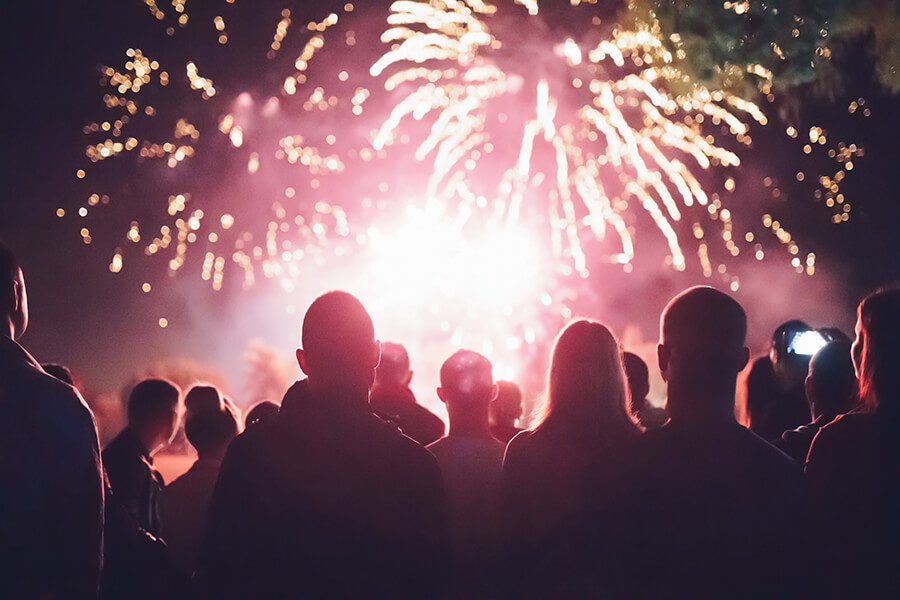
Management
Create a den area, that’s cosy, dark, safe and secure. It should be available 24 hours a day to them for a few weeks leading up to firework night and they should be able to go in and out at all times, never shut in. Scatter treats or leave a kong or bone in the den for your dog to find which will encourage them to lie in the den whilst creating a strong positive association with it. This can be done weeks before leading up to firework night, the earlier the better, just don’t leave it until the night. They may choose to retreat to their safe zone if they are anxious.
We often forget that a dog’s hearing is far more astute than ours. Humans hear frequencies for 20 to 20,000 Hz (the speed a soundwave is travelling– one Hz is one wave cycle per second). The high range for dogs is at least 50,000 Hz. So they are hearing the fireworks significantly louder than we are. Fireworks can range in frequency between 160-200 Hz (Tanaka, 2016) which can penetrate house walls. So it’s likely even with a den, all the windows, curtains and blinds shut and hidden in the home somewhere, our dogs will hear or feel firework bangs, therefore drowning the noise out using masking is the best bet.
There is specific dog music, created by ‘Through a dogs ear’, which has been shown to reduce anxiety and heart rate in dogs (Leeds & Wagner 2009), but further research has shown similar effects in shelter dogs listening to classical music (Kogan, 2012), short stories or even reggae! So don’t overthink it. Have a play around with different types of music, white noise, house appliances, and observe your dog to see what works best for them. Personally, I find house music with a constant, repetitive beat seems to switch my dogs off from being overly aware of any background bangs.
Scents
Lastly, you may have heard of Adaptil, a synthetic version of scents emitted by mother dogs to comfort their pups, and may be worn as collars or used as diffusers or sprays. I’m usually super pessimistic about these sorts of things and do feel that the evidence is fairly weak, but Adaptil collar-wearing dogs, during one study (Landsberg et al, 2015), found that dogs suffered half the anxiety that non-wearing dogs did during thunderclaps. This is very similar to firework studies, so it may be worth the investment. They should be clipped on or plugged in a week or so before firework night.
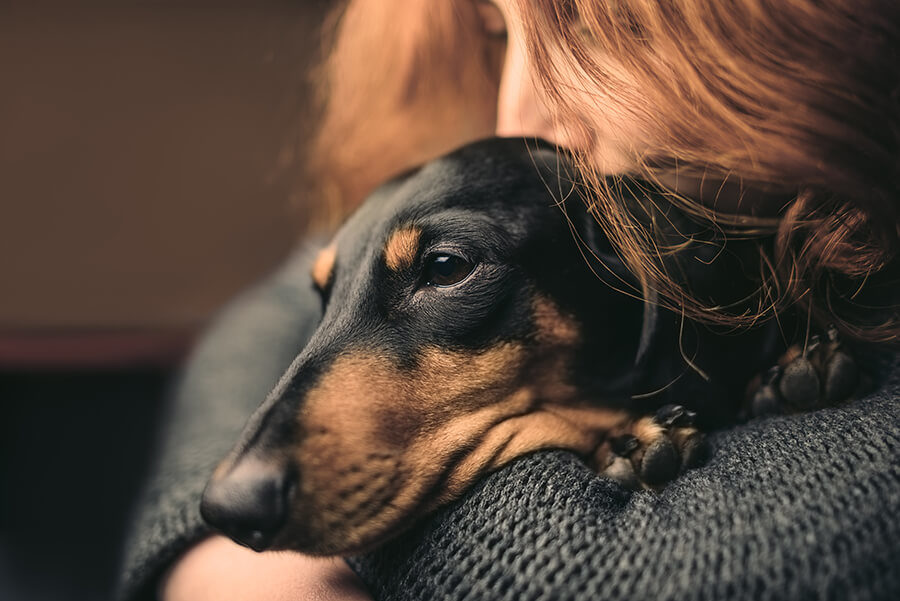
It’s ok to…
Lastly, YES it’s OK to reassure them if they request it, let them out to go to the toilet way in advance so you don’t have to brave it out to the garden until the fireworks have finished, and please seek veterinary assistance if your dog is suffering. There may be some pharmacological medication that can help you.
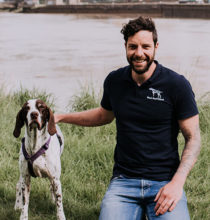
Thomas Smith (ISCP.Dip.Canine.Prac)
Owner of Man's Best Friend
Thomas is fully committed to positive, force free, up-to-date and science-based methods of teaching dogs a variety of new behaviours. He has studied at the International School for Canine Psychology and Behaviour and has a Diploma in Canine Behaviour and is an Associate Member of The International Companion Animal Network.
www.mansbestfriendbristol.co.uk
